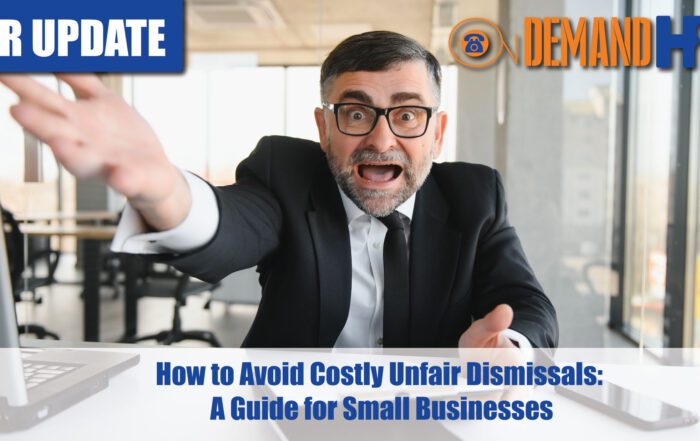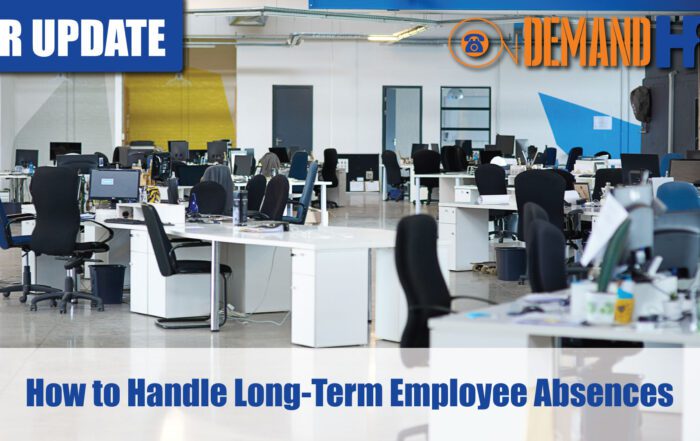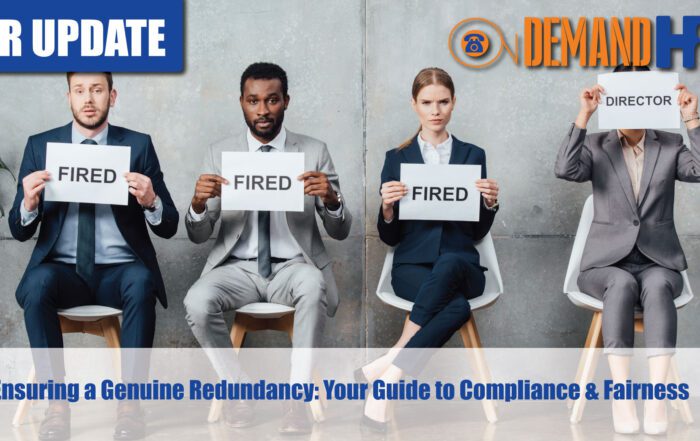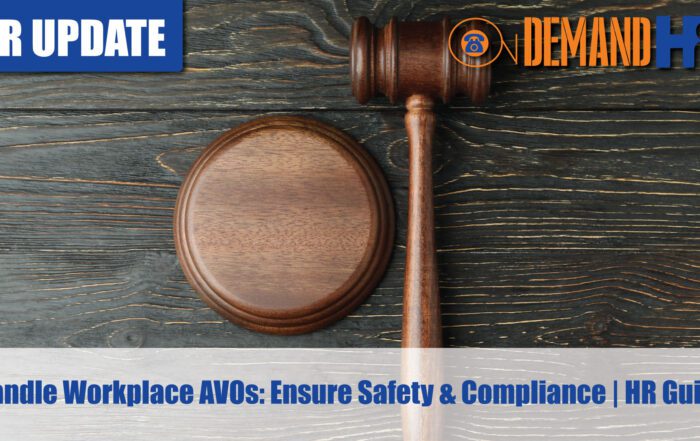What Is An Enterprise Bargaining Agreement
So what exactly is an Enterprise Agreement? Why do businesses enter into them? Do they benefit the employees, the business, the unions or noone?
Please see below for a full transcript of the video.
Share the HR or workplace relations challenge facing your business and one of our experienced consultants will be in touch within 24 hours with a strategic action plan or discover the best strategy yourself by accessing out free online training library.
Transcript
0:00
Enterprise agreements. So just as just a show of hands very quickly, is anyone in this room either have an enterprise agreement in their organization? Or has a client that has dealt with an enterprise agreement? recently? Just a show of hands? Anyone? Yes.
Okay, that’s fine. That’s fine. Look, I’ll just explain what an enterprise agreement is, because some may not even quite quite understand what an enterprise agreement is. So an enterprise agreement is an agreement. It’s between generally with a group of employees. So when you have an ordinary engagement, you engage an employee with an employment contract, say these are your terms and conditions. What an enterprise agreement effectively does is it governs the terms and conditions of either the whole organization’s all of the employees in the organization or a group of employees in the organization. So it’s kind of it’s a collective agreement that’s in place.
And it is, and there is a number of NFP’s that have these arrangements in place. So it’s not uncommon to find them in in NFP organizations. What an enterprise agreement typically does that, it takes you well it takes you out of the model award. So for example, if you’re in a modern award, and I’ll just give you an example of a company, I’ve recently dealt with a adhesives company, they had, obviously employees working in their warehouse, and they had wholesale employees selling product as well. And what we introduced was an enterprise agreement in that organization covering all of those employees in that warehouse in some of those wholesale employees.
And so what that does is takes them outside of the Modern Award. So as soon as the Fair Work Commission approves that agreement, that agreement applies to the employees in the warehouse, and in the wholesale, not the Modern Award. And obviously, the commission runs a test on this the better off overall test to determine whether the agreement should be approved or not.
I’ve recently done another enterprise agreement with a multicenter childcare facility, 14 different facilities. And there’s one enterprise agreement that covers all the teachers, all of the educators and the managers within those particular organizations. So rather than rather than be under the ordinarily, if they weren’t under that enterprise agreement, they’d be under two or three different modern awards. So they’ve got one enterprise agreement that covers that group of employees, rather than dealing with the three modern awards that would otherwise apply.
So situations where you might be forced into a modern award. So there is this concept of what’s called a majority support determination. So if a majority of employees in a section of a workplace or in a workplace overall, want to bargain for an enterprise agreement, the employer must engage in bargaining with those particular employees.
So sometimes what will happen is the union may very well rally, you know, a group of employees to want to engage in enterprise bargaining. The other the other situation is when an employer decides it wants to have an enterprise agreement. And I’ve got to be honest, there’s not that many situations where an employer would want to have an enterprise agreement, because ultimately, what an enterprise agreement leads to is it leads to higher wages, terms and conditions, and all of these things that is enshrined in that organization, and, and potentially other restrictions as well. So most of the time, when people are dealing with organized with enterprise agreements, it’s because they already have one, or they’re being forced to enter into bargaining, because of the majority support determination. They’re the two most common scenarios that would apply to an enterprise agreement.
There is a lot of enterprise agreements out there already in many, many organizations, and and a number of these will be in NFP organizations as well. So certainly, if you encounter an organization with an enterprise agreement, and they’re not happy with that enterprise agreement, then we can work through some of the considerations that’s in this particular presentation today.
So one thing that is being proposed as part of the reforms is that the Fair Work Commission boot test, so a boot test is a better off overall test. And what the commission will do is it’ll look at the enterprise agreement document, and it will say, right, these are the terms or conditions you’re proposing, now I’ve got to go and compare this to the Modern Award or modern awards that apply to these employees otherwise, okay, and then I’m gonna, as a commissioner, I’m gonna look at this and say, okay, are these employees better off under this Agreement? Or are they better off under the modern awards?
And if they formed the view that they’re better off overall, when compared to the awards, then it’s likely that the enterprise agreement will be approved, provided the procedural requirements are met. So one of the changes they’re looking to do now is approve the agreement based on the foreseeable patterns of work, not the hypothetical patterns of work. And whilst that’s only a very small change, what that means is that what the commission used to do is sort of look at it and say, well, but But what if the employee worked this these hours and these hours and these hours, whereas now they’re going to focus on foreseeable patterns of work, rather than the hypothetical patterns of work.
So to give you an idea, This childcare facility law recently did. We had to include provisions for shift workers, but they don’t have any shift workers. So they don’t work. They don’t have night shifts. They don’t have afternoon shifts. They the center closes at six o’clock. So those provisions are in the enterprise agreement. But really, they are basically they are useless, they don’t do anything because none of the employees work in those patterns. So whether that goes to things like this going forward is what may very well be on the table in terms of those those reforms.






